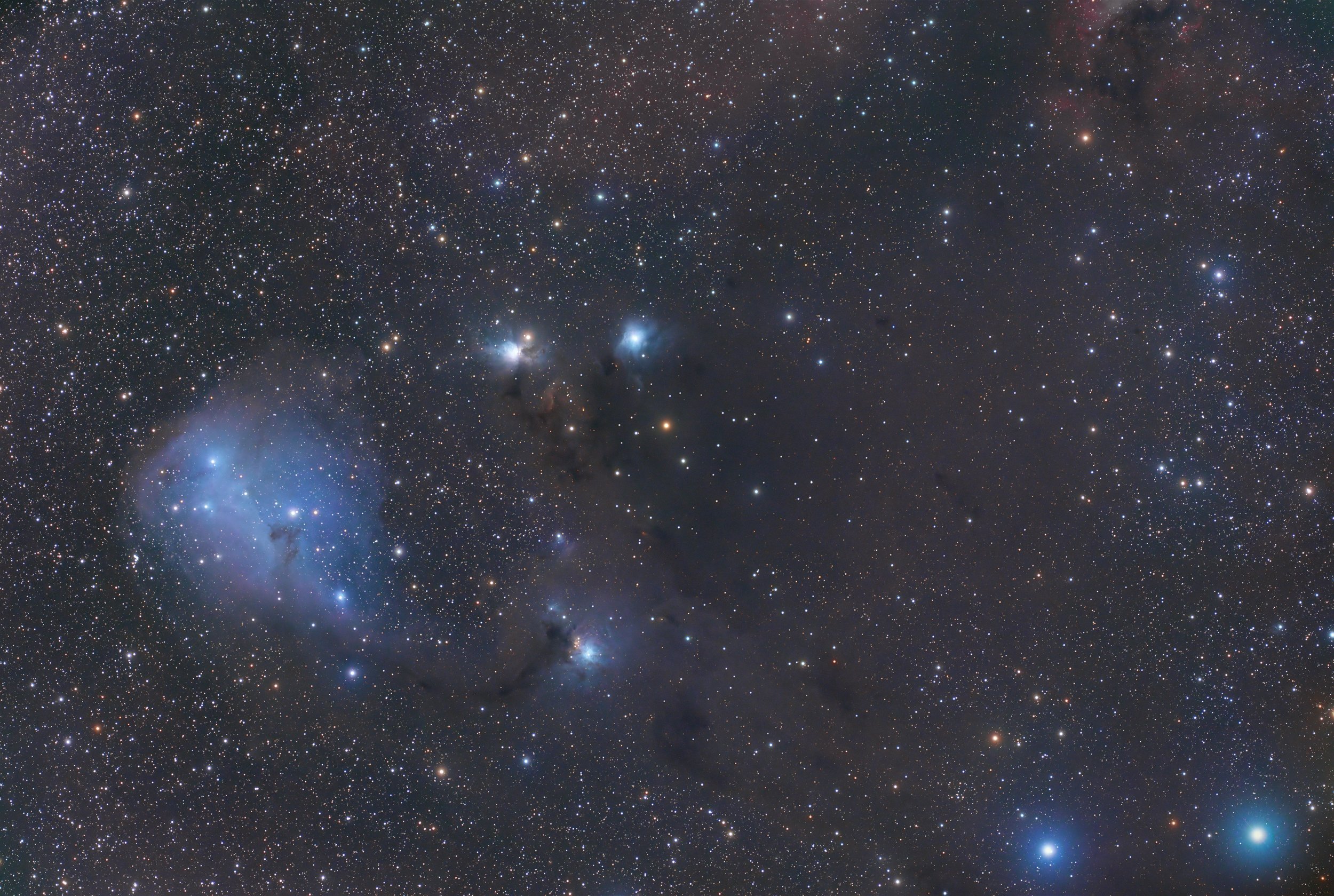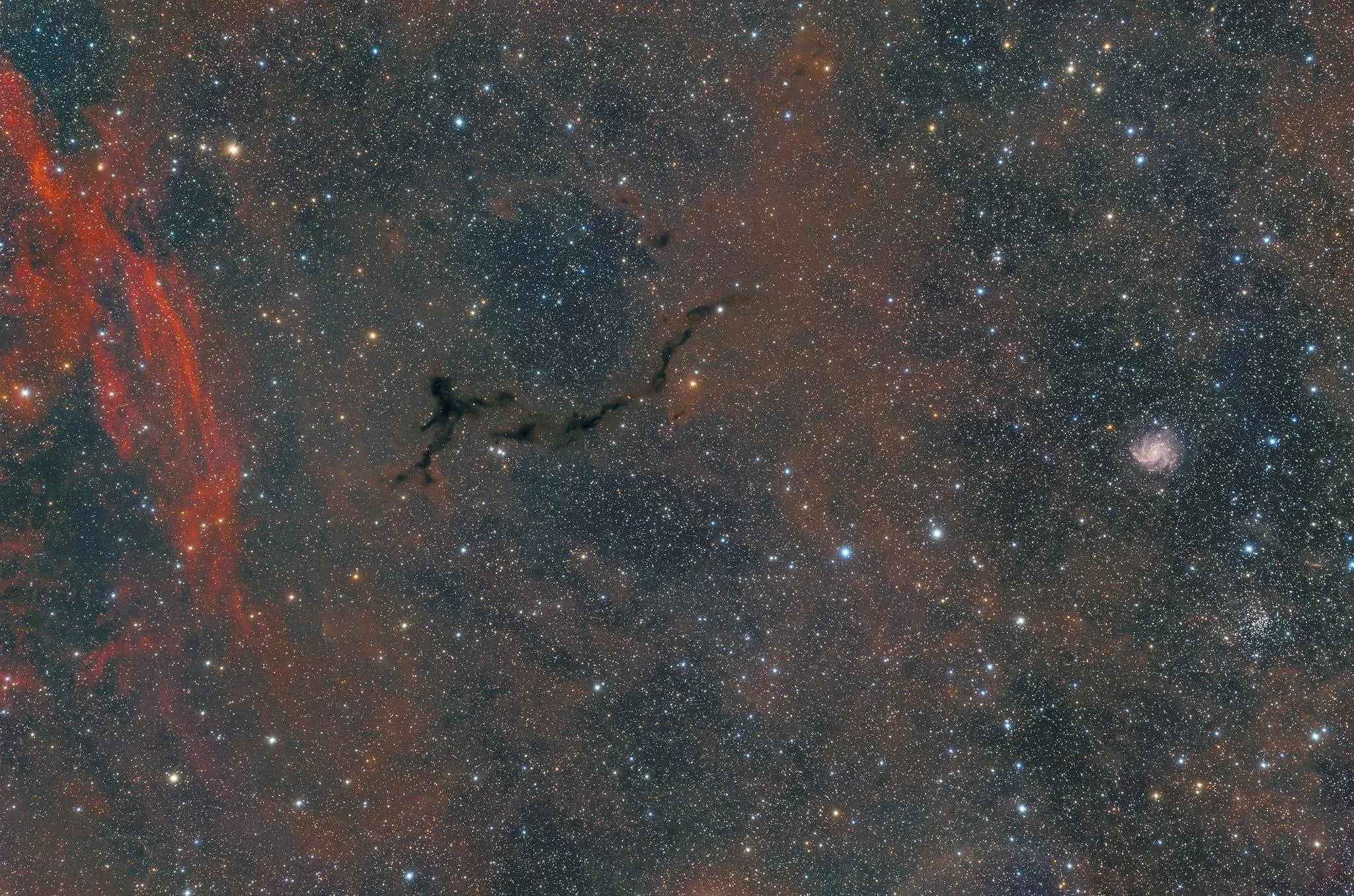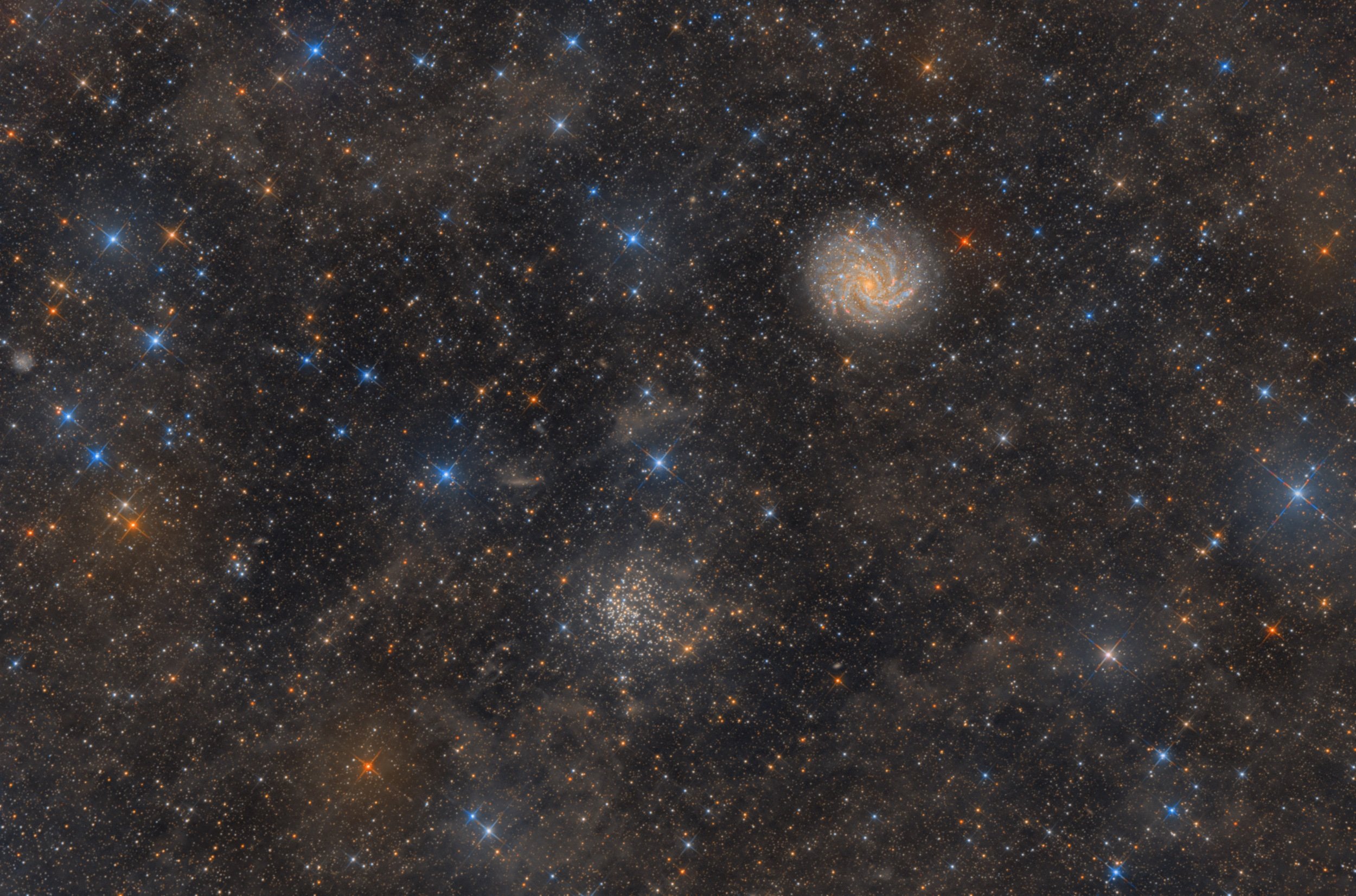
AAPOD2 Image Archives
Barnard 150
Image details:
This is Barnard 150 is a dark nebula visible in the constellation Cepheus. It is also known as the Hippocampus Nebula due to its shape.
Also in this image is Galaxy NGC 6946, nicknamed the Firework Galaxy, is a spiral galaxy seen almost face-on. Straddling the Cygnus and Cepheus constellations, as well as the NGC693 cluster.
Details:
Takahashi fsq-85-EDX
ZWO ASI2400MC-PRO camera
ZWO ASI290mm guide cam
Ioptron CEM70 mount
ZWO Asiair pro
IDAS NBZ Filters
Pixinsight - astro pixel processor - photoshop
Integration: 15h35
Copyright: Christophe Vergnes
NGC 6946: The Fireworks Galaxy and its open cluster
Image Description and Details : Rare are the spiral galaxies that we see exactly from the front. The spiral galaxy NGC6946 located in the constellation Cepheus is about 10 million light-years away.
She hides behind the curtain of stars formed by the Milky Way which crosses the constellation of Cepheus. Its orange central bulb is made up of old stars while the blue
young star clusters dominate in the spiral arms. Red reveals the presence of areas where stars are born.
The activity is so inetnse that one calls this galaxy, the galaxy of the fireworks.
When the light from this galaxy began its journey to strike my photographic in May 2022, the human line appeared (Sahelanthropus tchadensis) on Earth.
The galaxy is accompanied by an open cluster NGC6939 located in the lower right. Much closer to us than the galaxy (4000 light years), its age has been revealed between 1.0 and 1.3 billion years!
🔭: ASA Newton 254/950 F3.6
⚙️: Paramount MyT
📷: ZWO ASI2400MC à -10°C + rotateur Artesky
🕶: IDAS LPS-P3
🎯: Skywatcher Evostar72ED + ASI290MM mini
💻: TheSkyX pro, NINA, PHD2, AstroPixel Processor, PixInsight, Photoshop
⏱: 19h50' (119 x 600”)
🌍: Lorraine, France
📆: Over 4 nights : 3 may 2022 · 6 may 2022 · 9 may 2022 · 21 may 2022
Copyright: Thomas LELU
NGC 6946 - The Fireworks Galaxy
Image Description and Details :
This is an image of NGC 6946, also known as the Fireworks Galaxy. It is a face-on intermediate spiral galaxy about 25 million light years away near the boundary of the constellations of Cepheus and Cygnus. It spans about 40,000 light years in diameter, which is about one third the size of the Milky Way. It is classified as a starburst galaxy which means there is a lot of star forming regions as can be seen in the magenta regions in the image.
Telescope: Planewave CDK-17
Camera: FLI PL16803
Mount: Paramount ME
Luminance: 27x20 minutes (binned 1x1)
Red: 16x15 minutes (binned 1x1)
Green: 16x15 minutes (binned 1x1)
Blue: 16x15 minutes (binned 1x1)
Copyright: Bernard Miller




